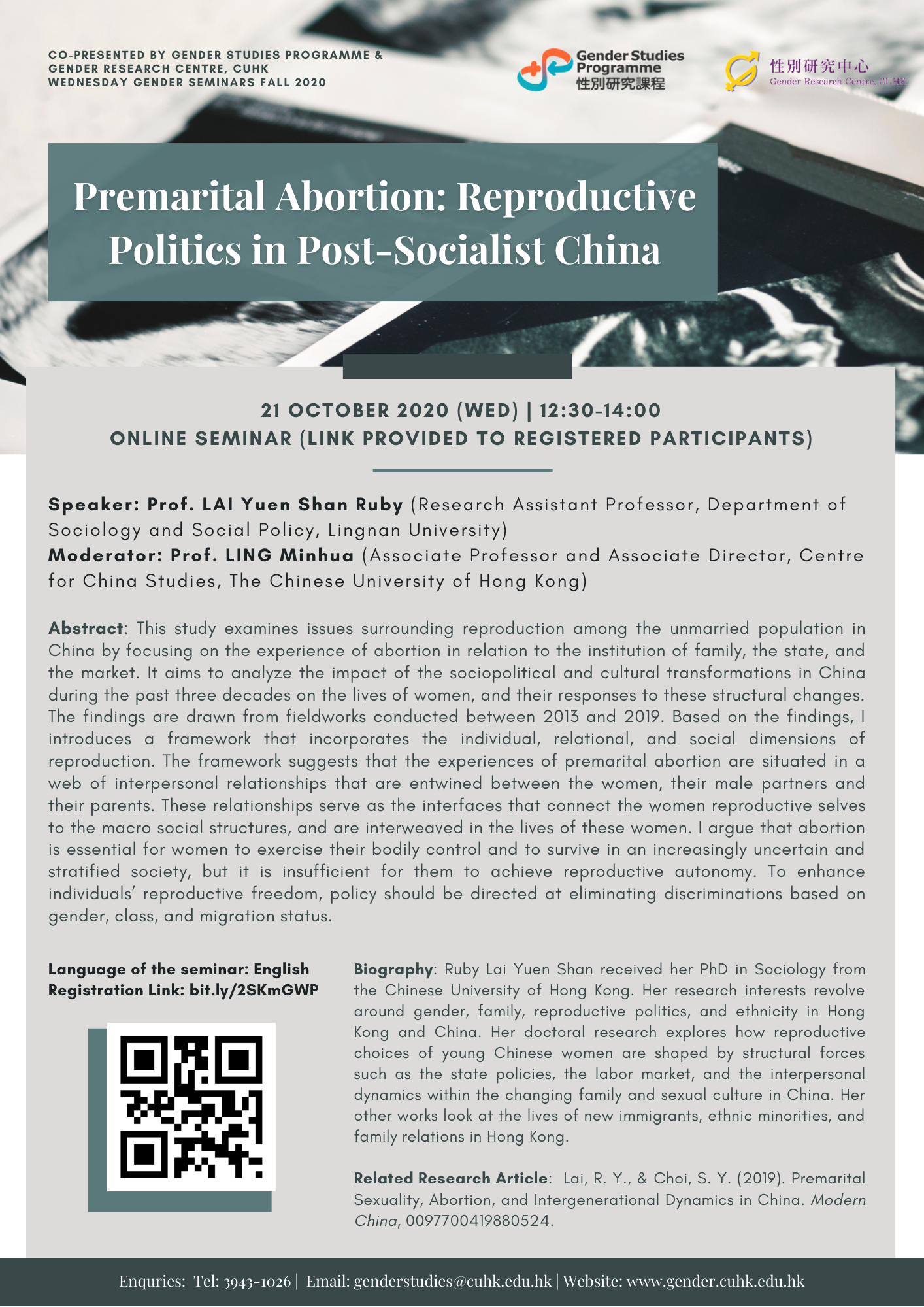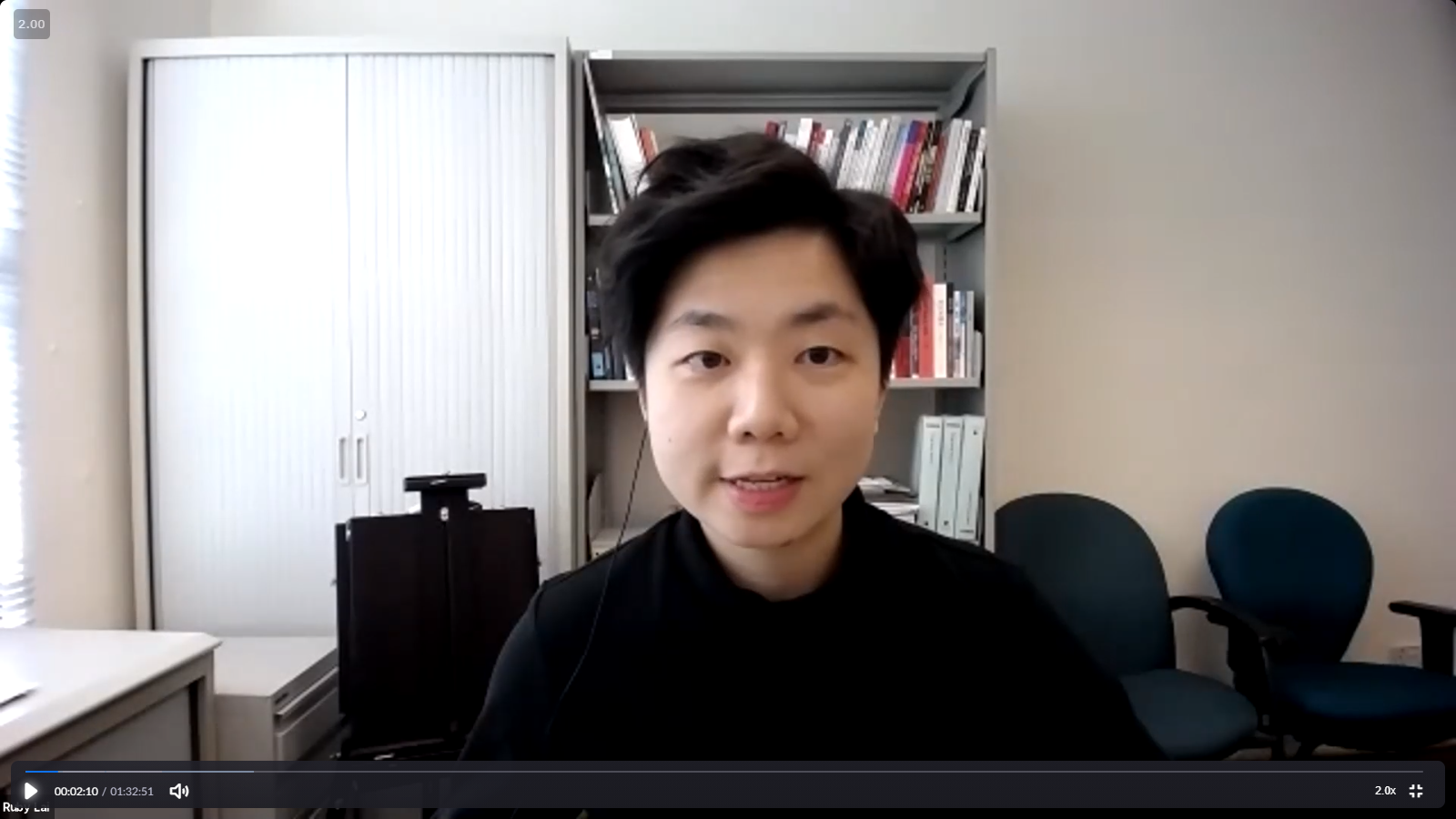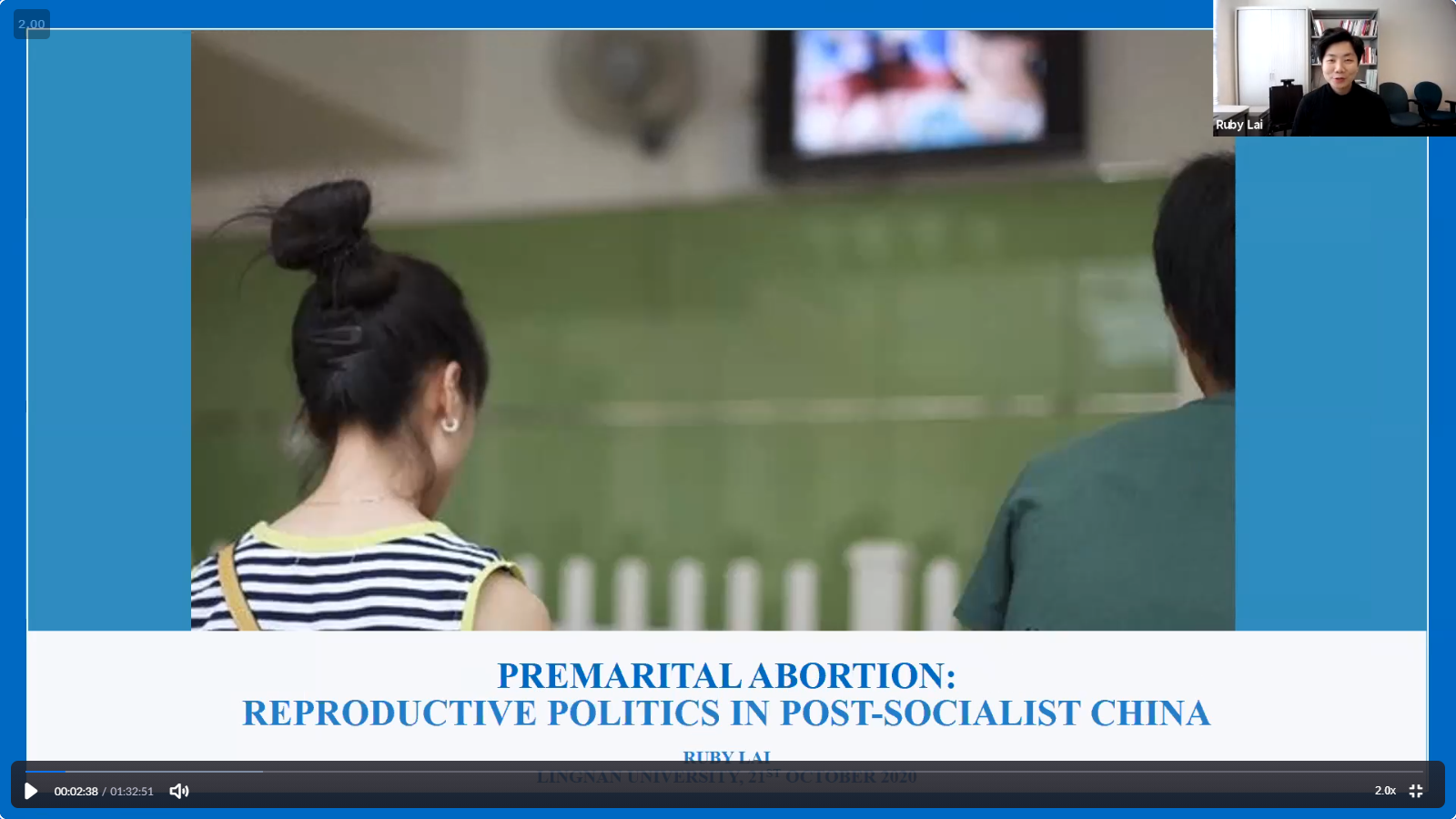In the online gender seminar on 21st Oct., Dr. LAI Yuen Shan Ruby, a Research Assistant Professor from Department of Sociology and Social Policy of Lingnan University shared her research on adult premarital abortion in China conducted between 2013 and 2019. In her research, Dr. LAI Yuen Shan Ruby used ethnographic observation and in-depth interviews to unravel the under-documented non-marital reproductive experiences of Chinese women, mostly migrants from less developed areas to an industrialized costal city, and also content analysis to examine the abortion cultural discourses in China.
According to Dr. Lai, adult premarital abortion is a window to investigate the interpersonal relationships that are entwined with the unmarried women, their intimate partners and parents in post-socialist China. These relationships serve as interfaces that connect the women’s reproductive selves to the macro social structures, and are interweaved in the lives of these women.
Under the universal project of living a “complete life”, factors leading to abortion vary from struggling between the girl and woman dichotomy, rejecting a hasty marriage, fear of single motherhood, pursuing a “nested birth” to expecting a quality child. The political propaganda of “You Sheng You Yu”, the society’s double expectations on women to be both an ideal female citizen and a virtuous mother, plus the celebration of the middle-class version of a harmonious family, overlap in the process of abortion decision-making.
For many women in Dr. Lai’s studies, they consciously define the premarital pregnancy as “the intimate trial” to evaluate their partners’ attitude towards the relationship, the maturity, reliability, and capability of serving as a future husband and a father. Even though men’s approval was crucial for continuing the pregnancy, their preference was not influential if the women did not want to carry on the pregnancy. The interactions of intimate couples during the pregnancy also reveal transgression of gender boundaries, for example, some men shouldered on the responsibility of domestic jobs and were also fragile during the abortion decision-making process.
Intergenerational interaction presents more dynamics in those women’s abortion decision-making process. Dr. Lai identified four patterns of parent–adult daughter interactions during the decision-making process of premarital abortion: excluding parents, referencing perceived parental views, consulting parents, and conforming to parents’ interferences. Her findings also suggest that some women have prioritized the preferences of their parents over those of their intimate partners because they consider intergenerational ties more enduring and reliable than ties between intimate partners.
Dr. Lai pointed out that within the context of a mature dating culture in urban China and the prevalence of premarital sex, women have achieved considerable control over decisions about sex and intimacy. But the unrestrained access to abortion is more an unintended benefit of the state’s modernization than a protection of women’s rights. While abortion is essential for women to exercise their bodily control and to survive in an increasingly uncertain and stratified society, it is insufficient for them to achieve reproductive autonomy.
The online seminar is part of the Wednesday Gender Seminar series co-presented by Gender Studies Program and Gender Research Centre, the Chinese University of Hong Kong.
(Written by Wang Teng and MA student Yi Xueman of Gender Studies)





A
A
A
Contact Us